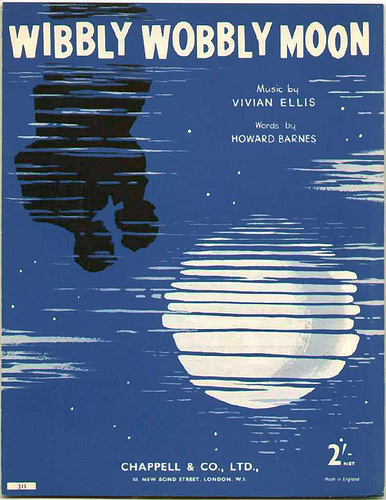by John Holbo on June 15, 2009
While we all wonder what is going to happen in Iran, a trivial question: what are single quotes for?
I just got my Plato book [yes, you can read the whole thing!] ms. back from Pearson for final-final-final corrections and it’s clear the proofreader is not a philosopher. That’s actually not a bad thing, since it means fresh eyes about some things. One thing I’m not sure about: I’m being told not to use single-quotes. Since there are a number of places where I definitely need them for use-mention purposes, I’m going to have to put my foot down. This probably means I should announce to the reader what the convention is. But then I have to state it and, the truth is, I also use ‘scare quotes’ – single-quotes to indicate that there’s something questionable or problematic about a term or phrase. There are a few bits where I briefly conjure a bit of hypothetical dialogue and use single quotes to make it look more speech-like. Looking at all these red marks, I gotta clean up my act. Maybe the proper thing to do is restrict myself to necessary use-mention uses and don’t use the things for anything else. What is your preference, if any? (I don’t mean just about my book. In general. What are single-quotes for?)
by John Holbo on June 15, 2009
Like all of you, I’m wondering what’s going on in Iran. Here’s a question I haven’t seen addressed (because it’s premature, that’s why, but I’ll ask it anyway): assuming that the election was stolen, why didn’t those responsible do a more competent job of covering up the evidence? Why the 11th hour scramble? If the election was stolen in this apparently crude, last-minute way, it would appear that the regime was in substantial denial about what was about to happen; which says something. Or it was unable to coordinate a large scale conspiracy to rig the election smoothly, further in advance, presumably for fear that some who were brought into the effort would betray it. That would say something, too.
Here’s a question that maybe people can answer: what’s the history of rigged elections? Are they mostly rigged well in advance, or do those in power do something crude and last-minute when they realize, to their surprise, that they are actually in danger of losing?
by John Holbo on June 11, 2009
My Philosophy: Mind and Manners post provoked good discussion but left certain things unsaid. Let me say something more that may help the discussion stay on a generally useful track. I mentioned in passing in that post that, while there were things that philosophers do, which they regard as conversation-starters, which others regard as conversation-stoppers, which causes confusion, the opposite is also true. There are things other humanists do that they think of as conversation-starters, that strike philosophers as rude and inappropriate, because, to the philosophers, they seem like conversation-stoppers – argument-stoppers. (In philosophy, there is hardly a distinction between conversation and argument, after all.)
But first let me back up a bit. What I was talking about in that post was a tendency for a certain style of ‘but it’s your central premise just false?’ question to be taken amiss by outsiders. Let’s be precise about this: the problem is that outsiders take these questions to express deep contempt – ‘I challenge you to prove you are not an idiot, and I very much doubt you will succeed. I am going to shame you in the eyes of everyone here today.’ But to philosophers themselves, this style of question is normal and perfectly consistent with mutual respectfulness (although, of course, it is also consistent with contempt – a thing unknown to the troglodytes of the philosophy cave by no means! yet it is not a dark fungal growth peculiarly indigenous to the philosophy cave. Am I making myself clear?) [click to continue…]
by John Holbo on June 10, 2009
There are few philosophical issues or policy questions that are not also M.O.D.O.K jokes (as this round-up reminds me). For example, the gender issue raised, but hardly laid to rest, by my philosophy: mind and manners post is just the classic M.O.D.A.M. (Mental Organism Designed Only For Aggression) question. (What do we think an academic philosophy education is good for?) [click to continue…]
by John Holbo on June 9, 2009
Welcome to our guest, Michèle Lamont, whose book I have been intending to read because it sounds damned interesting. The topic of her first guest post (philosophy vs. theory) has been an abiding research and reading interest of mine. A quick point about pecking orders, in response to her post, then I’ll just plug my own stuff, what hey! (But first: Squid and Owl was good today, and highly relevant to the theme of this very post. Right, that’s out of the way.)
Lamont says there’s a question as to “whether philosophers [inhabitants of that cave known as the department of philosophy, that is] have intellectual/emotional dispositions that preclude free interdisciplinary exchange of ideas. Or whether they are too concerned with their own status or with making claims for philosophy as the queen of the disciplines (encompassing others) to be open to interchange (to be contrasted with top-down proselytizing).” Yes, that one does get asked, and her asking it has provoked the usual range of responses in comments. (Not that there’s anything wrong with that!) But let me articulate what seems to me a fairly important sociological component to this ongoing interdisciplinary failure to communicate that actually tends to be overlooked – and is almost always funny. (So that’s two reasons not to overlook it.) Philosophers (by which I shall mean: typical inhabitants of the philosophy department) seem hyper-aggressive and bent on world domination because there is a style of debate in the philosophy department that is typically received as friendly and (personally) non-threatening by philosophers but typically received by non-philosophers in the humanities as the very opposite: namely, as unfriendly, an attempt to destroy, to humiliate, to silence, to cause the opponent to lose face in an intolerably grind-your-claims-into-sand fashion. (By the way, please note that I said ‘typical’. Yes, I know there will be counter-examples.) Who’s right? The question is ill-formed. It’s a cultural miscommunication. Maybe it’s easier to illustrate with a likely hypothetical. [click to continue…]
by John Holbo on June 3, 2009
It’s no secret that I’m a Klarion the Witch Boy fan. Which is why I was so amazed to see this on Flickr today. Kirby’s Klarion dates from 1973. But here is a pilgrim “witch boy” as early as 1965! “Thrills of mystery, Unknown worlds, strange powers – beyond” indeed! This could change everything! I feel like those scientists who dug up the Ida fossil. (Because I’m much less ambitious, obviously.)

by John Holbo on June 1, 2009
Yes, it is true! Visit the official book site. You can view the whole thing via Issuu.com, which has a very nice Flash-based reader: minimal and elegant but full-featured. And/or download the PDF for offline reading.
Want to see a neat trick? I can embed the book, like so.
Then you just click to turn the page (illegible at this size) or click to open and read in full-screen mode. It’s a very nice viewer they’ve got. Or I could make the embed open on a particular page, so when I’m blogging about a passage while teaching, I can just point the kids to the page in question. Or open the book itself onscreen in class and zoom so it’s readable. Neat, I call it.
The full book title (some would say: over-full): Reason and Persuasion, Three Dialogues by Plato: Euthyphro, Meno and Republic book I, with commentary and illustrations by John Holbo and translations by Belle Waring. It will be out in print by mid-August. The version that is up right now is actually the final draft – so far as I can tell. But I still have a week-and-a-bit to catch any last typos or mistakes. (I have a terrible suspicion that the Stephanus pages may have shifted a bit during the last edit. Gotta check that. How tedious, but oh-so-necessary.) I hope there aren’t any major problems with the book still, at this point. But if there are – well, I will do my best to make needed changes. So if you would like to volunteer your services as proofreader/last minute reviewer/critic, you are most welcome.
Not pre-publication peer-review. Not old-fashioned post-publication review. Perinatal peer-review. (Socrates always said he was a midwife. So I assume he would approve.)
The book is published by Pearson Asia (that’s a story in itself) and will be available in paperback by mid-August. They’ve been bringing out nice, inexpensive draft versions for my students in Singapore (that’s why I have an Asian publisher.) For this first general release I insisted on extending the deal I had insisted on for my own classroom use: I reserve the e-rights and so have a free hand to try manner of cool free e-stuff. I’m hoping one reward for my virtuous ways will be that some folks will want to adopt the book for classroom use. (Free e-availability is a big pedagogic bonus, I think.) And will then see to it that copies of the book are in school bookstores, so Pearson (and I) get paid a little. That seems fair.
OK, that’s all for now. If you want to talk Plato, please come on over to the book site. (And link! Please link! And help me edit the book, last minute, if you wouldn’t mind.) But it might be fun to chat about e-publishing in academia in this thread. If you are inclined. Doesn’t this sort of thing make a lot of sense. whatever you think of my particular book? I say it does.
by John Holbo on May 30, 2009
This is a follow-up to the distinctly non-sober but not wholly unuseful thread attached to my post on the Boston Review piece on Malhotra and Margalit’s survey research on anti-semitism and the financial crisis. The authors have asked for a chance to explain themselves, and their methodology, which has come in for a lot of criticism of an unavoidably speculative sort in comments to my post. Let’s hope this clears a few things up. Let’s try to be civil, shall we? The following is, obviously, not by me but by Malhotra and Margalit. And not edited by me in any way. – John Holbo
We are glad that our article generated thoughtful discussion, and we would be happy to address some of the questions people raised in the comments section. If our responses do not specifically address your particular comment, apologies in advance. Our goal here is to touch on some of the main issues. [click to continue…]
by John Holbo on May 30, 2009
by John Holbo on May 29, 2009
But first: why aren’t you reading more Squid and Owl. It’s cheap and morally improving. For example, last night’s exciting episode:

What we learn from this is, for example, that we should read comics. But which? (you gesticulate approximately and therefore helplessly?) Some are good, but some are bad. I have recently enjoyed the Eisner-nominated The Amazing Remarkable Monsieur Leotard [amazon], by Eddie Campbell, who has a blog. Since First Second has a generous preview online, you could sample before buying.
[amazon], by Eddie Campbell, who has a blog. Since First Second has a generous preview online, you could sample before buying.
And, under the fold, I’ll just tuck a few circus-related images I’ve stumbled on on Flickr: [click to continue…]
by John Holbo on May 28, 2009
Have you seen this piece in the Boston Review? “Anti-semitism and the financial crisis”. I honestly don’t know what to make of it and would like your sober opinion. Kindly keep non-sober opinions to yourself, however. The internet already has more of those than it can consume locally.
Basically, a weirdly high number of responses to “How much to blame were the Jews for the financial crisis?” were in the ‘moderate’ to ‘a great deal’ range. 32% of Democrats and 18% of Republicans ‘blame the Jews’ at least moderately for the financial crisis. I realize there is such a thing as the crazification factor. But that’s still pretty high. (I’m guessing the Republican numbers are lower in part because high numbers of them don’t actually admit there’s a crisis. They might be more willing to blame the Jews if it were made clear that they weren’t thereby committed to conceding the existence of the thing the blame is for. But that’s just an unscientific guess.)
The weird thing, of course, is that people are willing to go with ‘the Jews’ as a cohesive, mass-noun sort of designation. In part, people must be responding the way they do on the basis of a vague awareness that there are lots of Jewish names in the stories about the financial crisis. Bernie Madoff, for example. That is, they are saying: among those responsible (if we assume those at the top of the financial world are responsible) there were a number of Jews. Yes. But suppose you asked people whether to blame ‘the Jews’ for all the bad movies Hollywood keeps making. All the vaguely unfunny romantic comedies that keep being inflicted on innocent Americans – on Mainstreet, if you will. Look at the lists of producer and executive names on these productions. See any Jewish names? I’ll bet you see a couple. I like my Blame The Jews For Unfunny Romantic Comedies as premise for a Mel Brooks movie. Kind of a cross between “The Producers” and “Good Night, and Good Luck”. Some sort of hysterical anti-semitic, McCarthyite rumbling across America. Innocent Jewish producers of unfunny comedies having to go into hiding. And Jewish producers of perfectly funny comedies suffering guilt by association.
Suppose you ask who gets credit for America’s first class higher education system. Would people be willing to say ‘the Jews are somewhat or mostly responsible’, just because lots of professors are Jewish. Suppose you asked people whether ‘people whose names start with ‘M’ are somewhat responsible for the financial crisis’. Literally, that’s probably true, in some analytically vastly uninteresting sense. Madoff. I’m sure I could find other bad actors with names that start with M in the financial sector.
Probably you don’t need me to tell you that ‘blaming the Jews’ for the financial crisis is a bad idea. But I’m really at a loss as to what the hell so many respondents thought they were saying. Did 30% think they should answer ‘somewhat’ if they merely believed there were a number of Jewish individuals in the financial sector in positions of authority? Or do substantial numbers of Americans seriously suspect that there might be Jewish conspiracies afoot?
UPDATE: Malhotra and Margalit respond to critics. See this newer post.
by John Holbo on May 22, 2009
by John Holbo on May 13, 2009
by John Holbo on May 9, 2009
by John Holbo on May 5, 2009
So I clicked over to Pharyngula to see whether PZ had blown his top about the Fish thing (see previous post). Yes! In a manner of speaking.
I feel the need to cheer poor PZ up. So: the coolest thing on Flickr is this set of scans from a 1972 biology textbook that so desperately wanted to be a prog rock concept album. You should also read the tart commentary by the guy who posted it.
I thought about posting a few of the images here but I think, for full effect, you just need to view the whole set. (Just like you can’t really explain to someone why a particular Yes album is great by playing only 10 seconds of it.)



